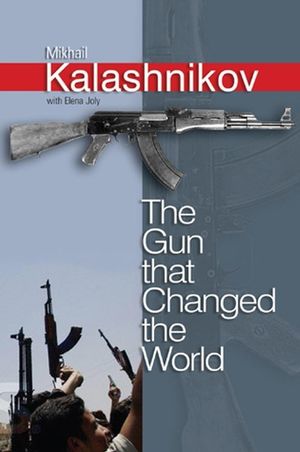The Gun that Changed the WorldISBN: 978-0-7456-3692-4
Paperback
224 pages
October 2006, Polity
 This is a Print-on-Demand title. It will be printed specifically to fill your order. Please allow an additional 10-15 days delivery time. The book is not returnable.
Other Available Formats: Hardcover
|
||||||
Times Literary Supplement
"A commanding portrait of a man who lived through the best and
worst treatment at the hands of the Soviet regime."
Tribune
"Mikhail Kalashnikov's autobiography is an intriguing look into
the life and mind of a self-taught weapons designer who believed in
what he did and for whom he did it. In plain language, this simple
man straightforwardly tells of the adversity he surmounted as a
youth to achieve the pinnacle of success as an adult. Though he
ascribes the success in his life to fate, his innate vision and
talent for the mechanics of weapon design show through
unmistakably. A Stalinist, communist and patriot to the end, his
life story is a valuable lens through with to view the history of
the USSR and Russia from revolution to the present."
Roger Reese, Texas A&M University
"Mikhail Kalashnikov’s 'assault rifle' bridged the gap
between the slow but accurate rifle and the fast but inaccurate
sub-machine gun, and thus brought us – in the 1940s –
to the point where armies still stand today. Readers of this
delightful book will wonder why he ever bothered. Purged by Stalin
and exiled to Siberia as a boy, Kalashnikov later accepted the
Stalin Prize for his work on the AK-47. This fascinating book is an
enthralling journey into the Soviet arsenal and mind."
Geoffrey Wawro, University of North Texas
"This book has pace, passion and a number of unusual insights
into the weird mindset of at least one section of the Soviet ruling
classes. It is a human story: a 'rags to riches' or 'poor boy makes
good' story – and occasionally even a tear-jerker. It also
contains some pretty good jokes."
Paddy Griffith, freelance military historian and
publisher



